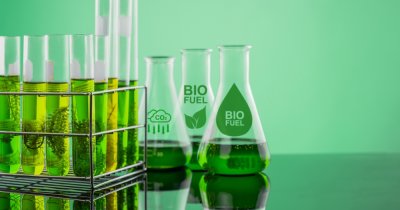According to the World Economic Forum, some regions in the United States, including Ada County in Idaho, want to adopt this new type of fuel.
Ryan Davidson, Ada County Commissioner said that "we are literally turning trash into cash for our taxpayers. This process of capturing landfill gas and converting it to a usable and sustainable product is something that will benefit the entire Treasure Valley and beyond."
Also known as biogas, renewable natural gas (RNG) is obtained through the process of burning organic matter, such as plants and food waste and is processed in order to reach the purity standards necessary to be used.
Furthermore, if it is compressed or liquified, it can be used as fuel for vehicles and if it is cleaned properly, it can be used for heating and electricity.
The pros of this new type of fuel are that, for one, it is a carbon neutral way to clean the landfills and provide fuel for our vehicles. It is considered to be carbon neutral because it is made out of plants that, through their lifetime, processed carbon themselves.
Chase Edgelow from EverGen Infrastructure Corp, a Canada-based RNG company said that "We need waste infrastructure. But we also want to decrease carbon emissions. So why would we let the energy from that waste infrastructure go straight into the atmosphere and go to waste?”
Despite the fact that RNG could aid to achieving the goal of net-zero emissions by 2050, it has some drawbacks as well.
One of the disadvantages is the fact that some companies want to mix it with regular fuel in order to obtain a "sustainable mix", which wouldn't bring the full benefit of this new type of fuel.
Then, there is also the fact that RNG doesn't eliminate greenhouse gas emissions entirely, like other fuel alternatives do, which means that there will still be pollution coming from it.
Renewable natural gas is a solution to using fossil fuels and even cleaning the landfills of organic matter that releases methane which damages the ozone layer.
But we should still focus on using clean energy alternatives that won't contribute to greenhouse gas emissions.
 Mihai - Cristian Ioniță
Mihai - Cristian Ioniță












Any thoughts?